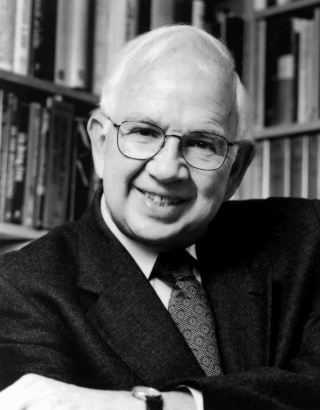
Harold Samuel Kushner was an American rabbi, author, and lecturer. He was a member of the Rabbinical Assembly of Conservative Judaism and served as the congregational rabbi of Temple Israel of Natick, in Natick, Massachusetts, for 24 years.

Holocaust theology is a body of theological and philosophical debate concerning the role of God in the universe in light of the Holocaust of the late 1930s and early 1940s. It is primarily found in Judaism. Jews were killed in higher proportions than other groups; some scholars limit the definition of the Holocaust to the Jewish victims of the Nazis as Jews alone were targeted for the Final Solution. One third of the total worldwide Jewish population were killed during the Holocaust. The Eastern European Jewish population was particularly hard hit, being reduced by ninety percent. While a disproportionate number of Jewish religious scholars were killed, more than eighty percent of the world's total, the perpetrators of the Holocaust did not merely target religious Jews. A large percentage of the Jews killed both in Eastern and Western Europe were either nonobservant or had not received even an elementary level of Jewish education.

Alois Brunner was an Austrian officer who held the rank of SS-Hauptsturmführer (captain) during World War II. Brunner played a significant role in the implementation of the Holocaust through rounding up and deporting Jews in occupied Austria, Greece, Macedonia, France, and Slovakia. He was known as Final Solution architect Adolf Eichmann's right-hand man.
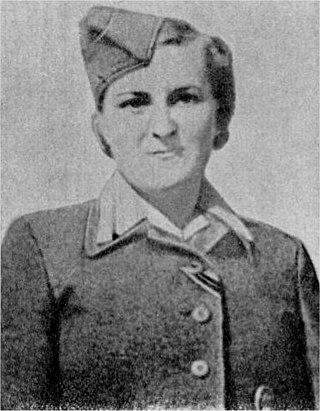
Hermine Braunsteiner Ryan was a Nazi Austrian SS Helferin and female camp guard at Ravensbrück and Majdanek concentration camps, and the first Nazi war criminal to be extradited from the United States to face trial in West Germany. Braunsteiner was known to prisoners of Majdanek concentration camp as the "Stomping Mare" and was said to have beaten prisoners to death, thrown children by their hair onto trucks that took them to be murdered in gas chambers, hanged young prisoners and stomped an old prisoner to death with her jackboots.

The Simon Wiesenthal Center (SWC) is a Jewish human rights organization established in 1977 by Rabbi Marvin Hier. The center is known for Holocaust research and remembrance, hunting Nazi war criminals, combating anti-Semitism, tolerance education, defending Israel, and its Museum of Tolerance.
This is a selected bibliography and other resources for The Holocaust, including prominent primary sources, historical studies, notable survivor accounts and autobiographies, as well as other documentation and further hypotheses.

Karl Josef Silberbauer was an Austrian police officer, Schutzstaffel (SS) member, and undercover investigator for the West German Bundesnachrichtendienst. He was stationed in Nazi-occupied Amsterdam during World War II, where he was promoted to the rank of Hauptscharführer. In 1963, Silberbauer, by then an inspector in the Vienna police, was exposed as the commander of the 1944 Gestapo raid on the Anne Frank House Secret Annex and the arrests of Anne Frank, her fellow fugitives, and two of their protectors, Victor Kugler and Johannes Kleiman.
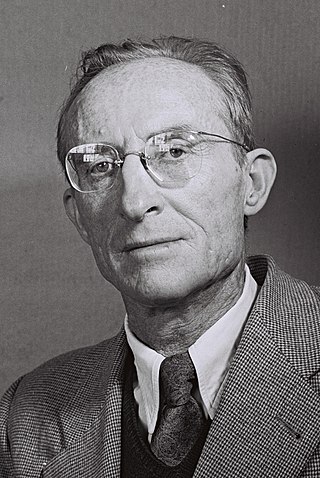
Uri Zvi Greenberg was an Israeli poet, journalist and politician who wrote in Yiddish and Hebrew.

Simon Wiesenthal was a Jewish Austrian Holocaust survivor, Nazi hunter, and writer. He studied architecture and was living in Lwów at the outbreak of World War II. He survived the Janowska concentration camp, the Kraków-Płaszów concentration camp, the Gross-Rosen concentration camp, a death march to Chemnitz, Buchenwald, and the Mauthausen concentration camp.
The Holocaust has been a prominent subject of art and literature throughout the second half of the twentieth century. There is a wide range of ways–including dance, film, literature, music, and television–in which the Holocaust has been represented in the arts and popular culture.
Operation Last Chance was launched July 2002 by the Simon Wiesenthal Center with its mission statement being to track down ex-Nazis still in hiding. Most of them were nearing the end of their lifetimes, hence the operation's name. Efraim Zuroff is director of the Wiesenthal Center in Jerusalem who serves as the Israeli liaison as well as overseer of this project, the focus of which is an investigation, prosecution, and conviction of the last remaining Nazi war criminals and collaborators. Many have obtained citizenship in Canada and the United States under false pretenses; usually by misrepresentation, omission, or falsification of their criminal past, specifically, war crimes which rose to the level of crimes against humanity.
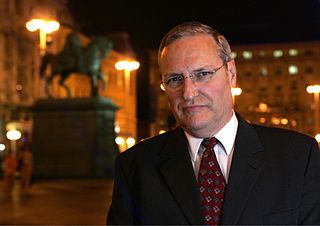
Efraim Zuroff is an American-born Israeli historian and Nazi hunter who has played a key role in bringing Nazi and fascist war criminals to trial. Zuroff, the director of the Simon Wiesenthal Center office in Jerusalem, is the coordinator of Nazi war crimes research worldwide for the Wiesenthal Center and the author of its annual "Status Report" on the worldwide investigation and prosecution of Nazi war criminals which includes a list of most-wanted Nazi war criminals.

Siegfried Seidl was an Austrian career officer and World War II commandant of the Theresienstadt concentration camp located in the present-day Czech Republic. He was also the commandant of the Bergen-Belsen, and later served as a staff officer to Adolf Eichmann. After the war, Seidl was tried in Austria and convicted as a war criminal, sentenced to death, and executed by hanging.

Eduard Roschmann was an Austrian Nazi SS-Obersturmführer and commandant of the Riga Ghetto during 1943. He was responsible for numerous murders and other atrocities. As a result of a fictionalized portrayal in the novel The Odessa File by Frederick Forsyth and its subsequent film adaptation, Roschmann came to be known as the "Butcher of Riga".
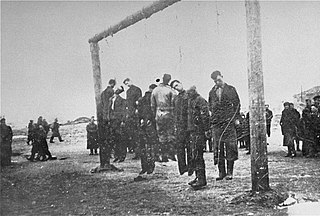
The Lwów Ghetto was a Nazi ghetto in the city of Lwów in the territory of Nazi-administered General Government in German-occupied Poland.

Janowska concentration camp was a German Nazi concentration camp combining elements of labor, transit, and extermination camps. It was established in September 1941 on the outskirts of Lwów in what had become, after the German invasion, the General Government. The camp was named after the nearby street Janowska in Lwów of the interwar Second Polish Republic.

Moshe Bejski was a Polish-born Israeli Supreme Court Justice and President of Yad Vashem's Righteous Among the Nations Commission. After surviving the Holocaust with the help of Oskar Schindler, Bejski immigrated to Israel. In 1961, he testified about his experiences during the Holocaust during the trial of Adolf Eichmann. He served on the Tel Aviv-Yafo district court from 1968 to 1979 and was appointed to the Supreme Court of Israel, where he served from 1979 to 1991. As President of the Righteous Commission from 1975 to 1991, Bejski helped honor thousands of Holocaust rescuers. He also headed the Bejski Commission in the aftermath of the 1983 Israel bank stock crisis, which led to the nationalization of most of Israel's major banks.

Aribert Ferdinand Heim, also known as Dr. Death and Butcher of Mauthausen, was an Austrian Schutzstaffel (SS) doctor. During World War II, he served at the Mauthausen-Gusen concentration camp in Mauthausen, killing and torturing inmates using various methods, such as the direct injection of toxic compounds into the hearts of his victims.

László Csizsik Csatáry was a Hungarian citizen and was convicted and sentenced to death in absentia in 1948 by a Czechoslovak court as a Nazi war criminal. In 2012, his name was added to the Simon Wiesenthal Center's list of most wanted Nazi war criminals.
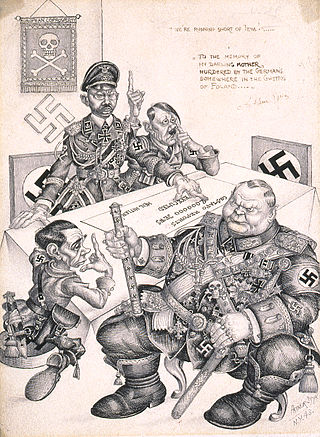
There are several major aspects of humor related to the Holocaust: humor of the Jews in Nazi Germany and in Nazi concentration and extermination camps, a specific kind of "gallows humor"; German humor on the subject during the Nazi era; the appropriateness of this kind of off-color humor in modern times; modern anti-Semitic sick humor.

















